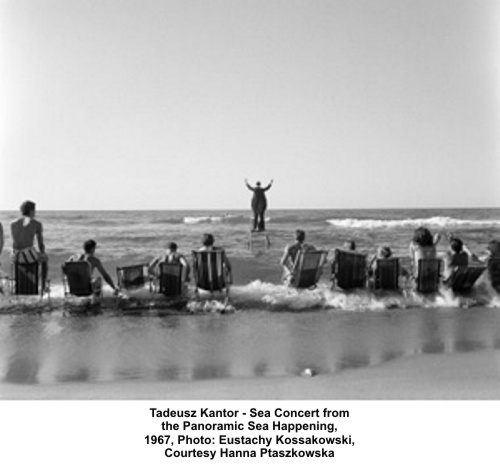
Tadeusz Kantor (6 April 1915 – 8 December 1990) was a Polish painter, assemblage artist, set designer and theatre director. His work and his writing about his work is what first sparked a real interest in theater for me, as well as an understanding that there are no limits to the transformative power of live performance.
I want to state openly that
this need to create theater
and visual arts
that would be d i f f e r e n t
from the reality of political terror and
of police vigilance
was grounded neither
in a moral obligation
to create
a R e s i s t a n c e M o v e m e n t ,
nor in feelings of p a t r i o t i s m ,
nor in the h e r o i s m of the underground movement.
I do believe that this process of
creating a d i f f e r e n t ,
o t h e r
reality whose freedom is not
bound by any laws of any system of life,
or the act itself, which is like a demiurge's act
or a dream
is the aim of art.
I keep stubbornly repeating this thought
because I am suspicious that
in the epoch of "the Springtime of the Masses,"
and of the fight for political and economic freedom,
this notion of
the biggest freedom
that is demanded by
a r t
will not be understood,
or will even be deemed unnecessary...
Freedom in art
is a gift neither from
the politicians
nor from the authorities.
Freedom exists inside us.
We have to fight for freedom
within ourselves,
in our most intimate interior,
in our solitude,
in our suffering.
— Tadeusz Kantor, 1990 (translated by Michal Kobialka)